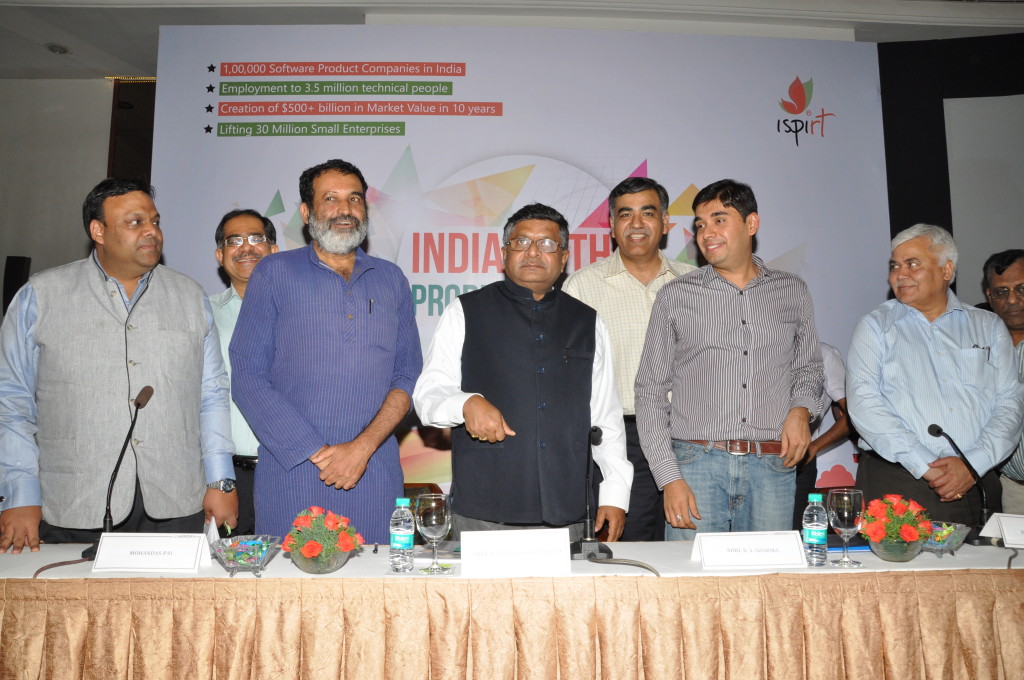The Modi Government has made bold moves on the world stage. Its now time to make one at home!
By Mohandas Pai & Sharad Sharma
New-age startups are making waves. Flipkart has redefined retail. Ola is changing how we travel by taxis. PayTm is at the threshold of disrupting banks. Forus Health is attacking blindness with gusto. Eko is bringing financial inclusion to millions. Team Indus is on its way to land a rover on the moon. Nowfloats is bringing lakhs of businesses online. Pick any sector, even agriculture, and you’ll find a new-age startup gamely trying to bring about change.
These new-age startups are not like our traditional small businesses. They are peculiar in many respects. For one, they don’t play safe. They take on incumbents that are many times their size. They seek out David versus Goliath battles. They have a ‘panga’ mindset where our traditional small businessman was all about ‘dhanda’. This craziness in their DNA makes them wonderful change agents. No wonder, these new startups are transforming India from within.
We are blessed to have these new-age startups. It turns out that this new species of small businesses thrives only in a few places in the world. The most famous locale is, of course, Silicon Valley. Europe, unfortunately, is a veritable desert. South America has only Chile as a small oasis. Asia, however, looks really promising. Israel became a startup hub first, then China and now India. We are now the third largest startup ecosystem in the world.
But there is something dark about India’s startup boom. Six of the eight Unicorns have domiciled themselves outside India-in Singapore or US. In 2014, 54% of all new-age startups raising money chose to domicile outside India. Last year this number grew. It is estimated to have crossed 75%! This points to a big problem.
You might wonder why it matters where Flipkart is domiciled. For starters, when Flipkart has its IPO, Indian citizens won’t get a chance to participate in it. Worse, the intellectual property of these redomiciled companies moves to their new home. But the worst is that the money that the founders and investors make at the time of an IPO or an M&A goes to their foreign bank accounts and tends to stay there. It stymies the creation of Rupee risk-capital system in India. It makes are startups almost fully dependent on foreign capital leaving most of them starved and under-capitalized in their early years.
Startup India is an opportunity to stop the exodus. It turns out that only 34 issues, across Ministry of Finance, RBI, Ministry of Corporate Affairs and Ministry of Commerce, need to be tackled. Work has been underway on them since 23rd Oct and 60% of the issues seem to be on their way to a resolution. But this 60% fix is a recipe for failure. Unless all the 34 items are resolved, exodus will not abate. Just one friction point is enough to send the startup to Singapore, where, a welcome band awaits.
Anything that we do in Startup India without addressing the issues on the Stay-in-India Checklist is a gift to Singapore. The Modi Government has made bold moves on the world stage. Its now time to make one at home!
Mohandas Pai was the CFO and then the head of HR at Infosys. He is now Chairman, Aarin Capital Partners.
Sharad Sharma was the CEO of Yahoo India R&D. He is a co-founder of iSPIRT, a non-profit think tank that wants India to be a product nation.


